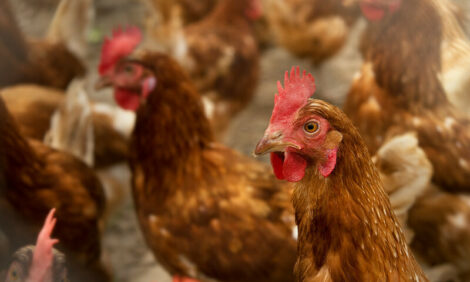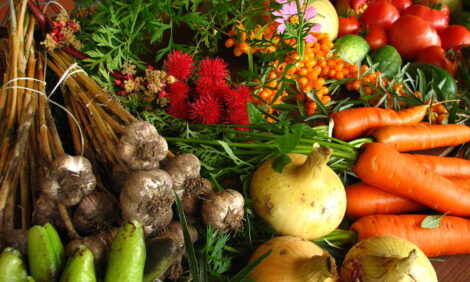



Chicken Meat‚ Egg Demand Drops
NEPAL - Valley Cold Store, one of largest wholesalers and retailers of chicken meat, bears a desolate look these days. The store, which used to sell up to 3,000 units of chicken per day prior to the bird flu outbreak, has not been receiving customers lately and is selling less than 300 units of fowls a day."We don’t have many clients these days as they fear consumption of chicken and eggs might lead them to catch bird flu," said a management member at Valley Store Sakshyam Ghimire. This fear has drastically lowered demand for poultry products in Kathmandu.
According to The Himalayan, although government and poultry farmers have said it is safe to consume poultry products that have passed rapid influenza ‘A’ test, many consumers are wary as they are not certain on shops selling untainted meat and eggs.
"I have strong doubts about the government doing serious work in providing us hygienic products because of the fragile quarantine system in the country. This psychological fear is stopping me from consuming chicken and eggs," said Saurav Nepal, a passionate meat lover.
Chicken traders, on the other hand, argue they are being sincere in delivering clean products in the market. "We are cooperating with the government in destroying bird-flu infected chickens and eggs because we also want the poultry sector to remain disease-free. We also know our businesses will grow only if the flu is eradicated," said president of National Chicken Traders Association Janga Bahadur BC.
To control the spread of the virus, the government banned the import and transport of chicken in Kathmandu Valley for a week from 1 August. Since then it has been conducting rapid tests on chickens imported into the Valley and those being transported out of poultry farms in the Valley. If these chickens are found infected with the influenza ‘A’ virus, the government teams immediately destroy them.
"The government has put in its best effort to control bird flu by killing all the fowls as well as monitoring the market and sending safe chickens to vendors," said Dr Pradip Chandra Bhattarai, the spokesperson appointed by the government to disseminate information on the bird flu episode.
"We hope to control this situation within a week, therefore we request for good support from poultry farmers and the people," he added.
Yet, demand for chicken and eggs has fallen by over 80 per cent in Kathmandu Valley from 250,000 kg chicken per day as claimed by the National Chicken Traders Association.
Since there is not much demand for poultry products these days, supply has also fallen. One reason behind the low supply is culling of poultry products in bird flu affected areas in Kathmandu Valley.
Since the recent outbreak of bird flu, the government has killed over 1.56 million units of chicken and destroyed more than 1.20 million units of eggs in Kathmandu Valley, Chitwan, Kavre, Hetauda and other places around the country. Of the poultry products that were destroyed around the country, almost 99 per cent came from the Valley and Kavre.
"Lately, most of the poultry farmers in Kathmandu Valley have also stopped rearing chicks as they fear they might fall prey to the bird flu virus," said president of Nepal Hatchery Industries Association Shiva Prasad Sharma. "This has severely affected supply in Valley."











